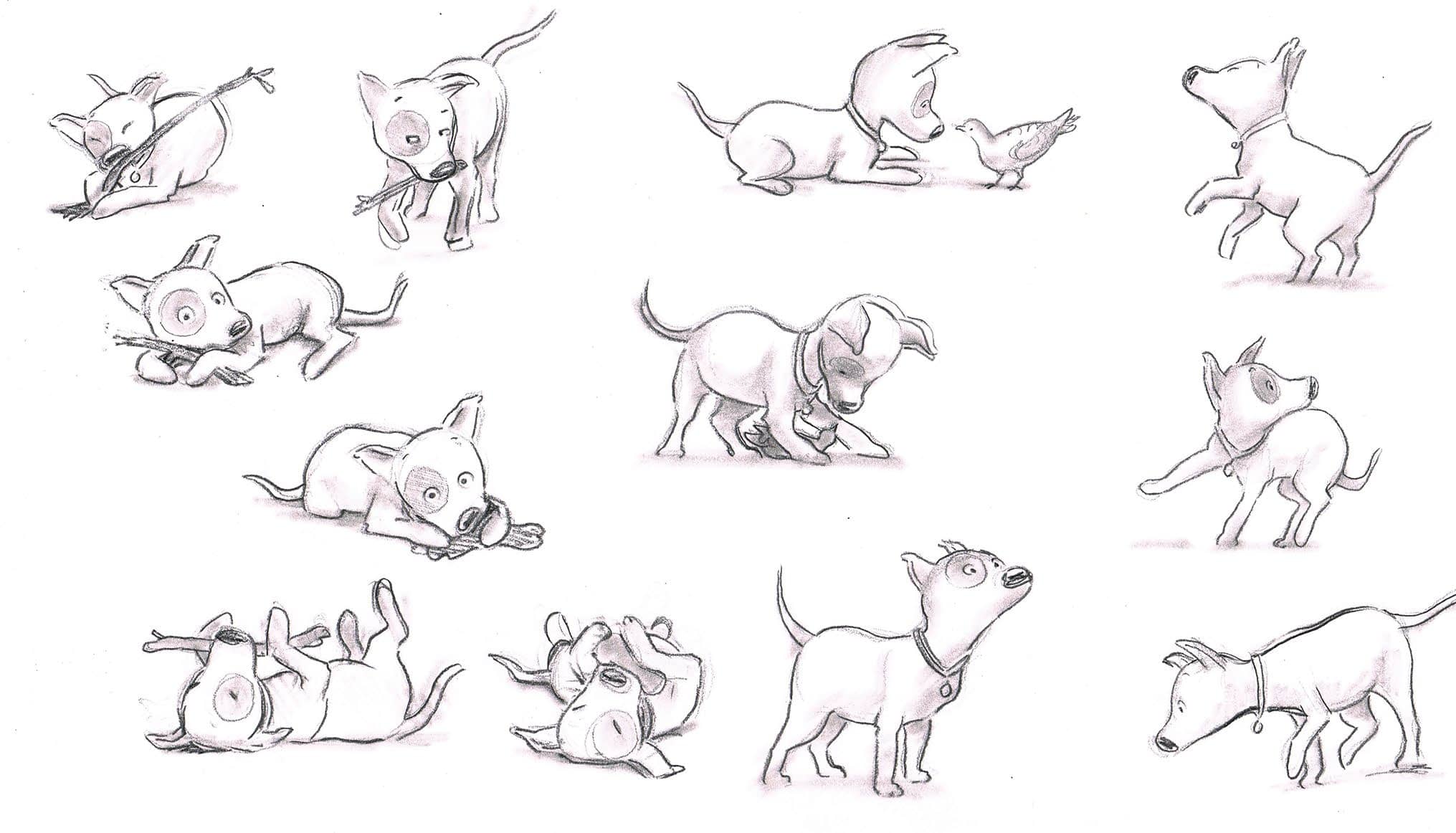Prøve GULL - Gratis
15 Tips For Better Character Design
ImagineFX
|July 2021
Illustrator and author David Melling reveals how he brings his book characters to life, using exaggeration, silent narrative, props and more

I was once asked to name three important skills required to be a successful book illustrator. I said, in no particular order, draughtsmanship, character and pathos. No doubt others will have their own top three, but I stand by these for the kind of book illustration that appeals to me.
In my opinion, character is right up there. But what is character? And how do you go about finding it, creating it? And when you have it, how can you use it most effectively in your work?
When I started out, I acquired some by looking at the books and art that appealed to me and asking myself why I liked them. Character seemed to be the answer time and time again. We all hope our art will appeal to a wide audience, but character appeal is subjective. In that respect, there’s no golden ticket to character design. Yet I’ve learned there are things you can do that can be effective in bringing your characters to life which, with a bit of luck, resonate with others.
1.CHARACTER SHEETS
Once I’m happy with a particular design I create character sheets. Here, Ruffles is being very doggy as he runs around on the page – reacting, responding and so on. He’s a puppy, but also a toddler and I’m trying to get that across here in his playfulness. At the same time I want to avoid him being too anthropomorphic (so, not sitting with hind legs forward, for example).
As I’m drawing, I’m asking myself questions. What’s he like? Is he shy, bold, moody? How does he walk? Is it bouncy, elegant, bumbling? All the answers feed into the drawing and, hopefully, help evolve character.

Denne historien er fra July 2021-utgaven av ImagineFX.
Abonner på Magzter GOLD for å få tilgang til tusenvis av kuraterte premiumhistorier og over 9000 magasiner og aviser.
Allerede abonnent? Logg på
FLERE HISTORIER FRA ImagineFX

ImagineFX
HP Omnibook X Flip 16
DOUBLING UP HP's latest Omnibook 2-in-1 is a decent-enough productivity laptop, but it truly shines when it's transformed into tablet mode
2 mins
February 2026

ImagineFX
Phaya Akat - The Sanctuary
“Phaya Akat’s Sanctuary Village began from a simple idea inspired by Thailand’s tradition of boiling eggs in natural hot springs.
1 min
February 2026

ImagineFX
HOW SURFACE NORMALS IMPROVE YOUR 3D ART
Ant Ward explains how to quickly change the way a polygon model looks by adjusting its normals
1 mins
February 2026

ImagineFX
Painting in Procreate: Reimagine Your Surroundings
VISIONARY WORK Across 20 lessons, Mikko Eerola reveals how he brings his ideas to life on the iPad using Procreate
1 mins
February 2026

ImagineFX
Technique focus: WORK SMARTER WITH COLOURS
Álvaro Jiménez reveals the workflow process he follows to summon an armoured demon
1 mins
February 2026

ImagineFX
FIVE MINUTES WITH PAT IMRIE
Big-screen blockbusters and a certain 3D art magazine helped set this creative on his career path
3 mins
February 2026

ImagineFX
RIFF ON YOUR PASSIONS
Max Froer draws on a range of influences when rendering a beast that's part machine
1 min
February 2026

ImagineFX
Anker SOLIX C1000
BOX OF DELIGHTS The chonkiest power bank around is powerful, portable (after a fashion) and boy is it well built
2 mins
February 2026

ImagineFX
PAINTING A SCENE OF GREEK DRAMA
Alexander Leskinen creates a stormy environment featuring harpies, the winged messengers of Zeus.
3 mins
February 2026

ImagineFX
HOW DO I COLOUR A 3D OBJECT?
The process of colouring a 3D image has a lot of layers, so let's start at the surface. Mike Griggs weighs up the material requirements
2 mins
February 2026
Translate
Change font size
